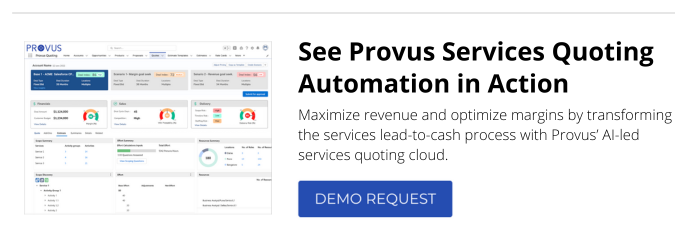Historically, business-to-business (B2B) companies purchased products and other raw materials for use in manufacturing (i.e., parts purchased for vehicle or electronics manufacturing). During this time, transactions were driven primarily by personal relationships with salespeople who relied on cold calling, trade shows, or advertising in trade publications to reach prospective customers.
However, the proliferation of the internet in the 1990s changed the B2B landscape, providing a ripe environment for buyers to learn about products on their own time before initiating contact with a company. This new way of buying and selling propelled the development of technology dedicated to managing novel B2B processes, from enterprise resource planning (ERP) systems that provide a back-end for manufacturing and accounting solutions to customer relationship management (CRM) systems that record and track the front-end activities related to prospect nurture. As ERP and CRM systems continued to evolve, a need to manage complex sales between enterprise businesses gave way to systems that help configure, price, and quote (CPQ) products.
The rapid growth of the B2B landscape resulted in the rise of services organizations, businesses dedicated to aiding companies in areas that require a specific set of skills — a growing need as new technologies called for subject matter experts, implementation partners, and maintenance services.
The State of Services Organizations Today

95% of services organizations today build complex quotes on spreadsheets.
Services organizations are unique. Instead of selling products, they sell services — from professional services to consulting services to asset-based services. There are four major trends in the services industry today:
- Product quoting solutions are failing services organizations. The dynamic nature of services quoting does not naturally lend itself to product cpq solutions, which are dependent on price waterfall models, individual SKUs or products, or spreadsheets, which are not built to handle the size and complexity of service quotes. Without a dedicated system or process, spreadsheets simply exist as islands of calculation prone to errors, miscommunication, missed revenue, inefficiency, and poor customer experiences.
- Resource demand is surging, supply is shrinking. Demand for services is booming. However, as the need for more services offerings increases, the talent pool for the market is shrinking. If services organizations do not optimize talent resources, they are at risk for staffing or bandwidth issues, delayed project start times, and diminished customer satisfaction.
- Margin optimization is replacing the focus on revenue growth at all costs. Gone are the days when the primary focus was to grow top-line revenue. The sudden onset of a global pandemic forced leaders to laser focus on margin optimization, resulting in the need to think about optimizing resources and accurately scoping, quoting, and delivering projects. The importance of customer experience is even more in the spotlight as it is the main driver of customer lifetime value.
- AI will be required to maximize the value of services quoting solutions. Services organizations are turning to AI to increase efficiency in their processes. The volume of data flowing through the lead-to-cash lifecycle is so vast and complex, AI will be required to make data-driven decisions that quickly identify promising opportunities and make change recommendations to maximize revenue and optimize margins.
Despite the demand for more services and the proliferation of technology on the market, services organizations still grapple with sales cycles prone to errors, collaboration issues, and a limited ability to make necessary adjustments. Why? Because manual spreadsheets and product CPQ solutions do not map to the unique needs of services organizations — like scoping for multiple services, managing fluctuating rates, and addressing change orders.
Services organizations need services quoting, a process purpose-built to tackle the size and complexity of service quotes.
Key Challenges for Services Organizations

Challenge #1:
Operational inefficiencies and inflated operation costs
- Excel-based manual processes throughout scoping, collaboration, and quoting processes
- Multiple disconnected systems, spreadsheets, and email chains
- Sales and delivery teams spend too much time on admin tasks
- Long services sales cycles hold up software deals
Challenge #2:
Lack of visibility into the business
- Spreadsheets are not visible in Salesforce; unreportable
- Executives are unable to get real-time updates on open proposals
- Difficulty prioritizing deals or optimizing resources across projects
- Lack of pricing transparency and accuracy
Challenge #3:
Lost revenue and margin erosion
- Missed revenue attachment opportunities
- Difficulty comparing scenario models and optimizing a deal structure
- Partial quoting data compromises resource forecasting and optimization
- Costly pricing mistakes impact thin services margins
4 Key Areas to Evaluate in Your Services Quoting Process

As the pandemic subsided and supply chain issues were addressed, other macroeconomic conditions (like interest rates and labor costs) drove up inflation, hammered discretionary budgets, and quickly forced business leaders to scrutinize every line item in their budgets. Amidst the economic downturn, sales teams were asked to increase prices at an aggressive pace while keeping volume up to reach growth targets. Prior years of mergers and acquisitions were pushed to integrate and find cross-sell opportunities to find savings in operating expenses.
With the growing emphasis on bottom-line growth and margin optimization, a well-defined sales process attuned to changing market forces is fundamental for growth and success. It’s more important than ever for services organizations to examine their processes — starting with their services quoting process — and take action that maximizes revenue, optimizes margins, increases operational efficiency, and ensures compliance.
There are four key areas to evaluate in your services quoting process:
- Revenue Maximization. Identify areas to increase services offerings. Where can you gain more revenue early in the scoping process? Are your deals bringing in the highest amount of revenue possible? The truth is, a lot of money is left on the table because of avoidable mistakes. To increase revenue on every deal, strive to do the following three things:
- Reduce cycle time to improve win rates and increase deal size.
- Capture missing project elements or identify upsell opportunities.
- Deliver long-term value to increase the overall lifetime value (LTV).
- Margin Optimization. Be acutely aware of managing margins. Are you optimizing with a mix of resources and effort while minimizing scope risk? Do you use data to make real-time pricing decisions? Are you forecasting resources to determine if you need to scope more hours for a particular phase or insert a different level of resource? All of these actions tie margins closer together. Services quoting makes it easy to confidently make margin-based decisions and negotiate attractive deals for multi-year, multi-services, and complex global services.
- Operational Efficiency. Ensure your business is running efficiently. Are you accelerating deals with full sales cycle automation from CRM to PSA? Is there alignment between sales and services workstreams with a streamlined process from quoting to approvals? Is the team bringing in the right people at the right time to collaborate on project scoping? Automating critical pieces of the services quoting process and calling in certified experts helps ensure operational efficiency.
- Compliance. Guarantee compliance for you, your customers, and their customers. Are data entry errors and a “lack of approvals” impacting business and legal risk? Are older legacy systems disconnected from your core business systems? Dedicated services quoting connects critical data and project history living in CRM systems to ensure compliance with corporate policies.
The Anatomy of Services Quoting Solutions

Product CPQ does not fit the unique needs of a services organization. This should come as no surprise given product CPQ was made for selling products, not services. Services organizations deserve a quoting solution designed for their unique needs.
A collaborative services quoting solution is anchored by historical data and led by AI-driven scenario planning so you can maximize revenue, optimize margins, and increase operational efficiency. When considering services quoting solutions, the following features will ensure you provide your customers (and their customers) with a truly connected client experience.
Guided quoting helps you quote and scope the best project. Quickly create services quotes that meet customer needs and comply with corporate policy. Guide sales reps through the project scoping and planning phase to ensure they understand the margins and hit the right service factors. Remove the challenge of tribal knowledge among salespeople and lack of continuity with quote wizards, multi-service templates, flexible work breakdown structure, flexible scoping questionnaires, and more.
Advanced pricing capabilities ensure services projects are accurately priced. Customize rate cards so you can make edits during a specific project phase or service line item to change pricing or include discounts that will affect resource allocation. Set user-based access controls to manage viewer permissions (especially important if you subcontract the contracts to other businesses) or enable COLA adjustments to account for unforeseen actions in the future.
Quantitative scenario modeling identifies the best services combination. Reduce deal cycle time and negotiate profitable deals by comparing the impact on margins for multiple scenarios. Provide stakeholders with various what-if scenarios to quickly receive a response and offer customers approved options to select from.
Collaboration and approvals unite sales and services delivery teams. Accurately scope projects for your clients and approve the best deals for your organization with centralized workflows in Salesforce. Ensure critical documents go to the right person, eliminate confused communications, and limit extraneous syncs. Reduce redundant middlemen by inviting internal or external subject matter experts (SMEs) to help scope out specific product phases.
Document generation trims days or weeks off the sales cycle. Quickly create documents that automatically pull project scope, effort, resources, and schedule information into a customer-ready document. Select from current and pre-approved SOW/MSA templates and eliminate the need for changes and revisions from multiple teams.
When your services quoting solution is purpose-built on an enterprise data foundation, you can be confident in how critical deal and delivery data is acquired, organized, and analyzed for action.
The Future of Services Quoting: AI-Driven Revenue Forecasting and Margin Optimization

The evolution of the pipeline and delivery stages has reached a state of maturity that involves the industry-wide adoption of best practices for the processes and technology implementation in front- and back-office business functions. Yet, there’s a visible gap in continuity in between during the quoting stage. Services quoting processes (scoping, estimating, resource planning, etc.) still have ample opportunity to evolve how technology contributes to widespread adoption.
Services organizations are turning to AI to increase efficiency in their processes — particularly in the services quoting process, which sits in a crucial phase of data collection and organization. To be successful, leaders must develop strategies that take advantage of the speed and scale AI introduces to their analytics and analysis.
There are four key areas of analysis that services quoting should deliver to make timely deal decisions:
- Descriptive: What happened in past transactions
- Diagnostic: Why things happened the way they did
- Predictive: What is most likely to happen in the future
- Prescriptive: What actions will provide the best possible outcome
AI applications in a connected services quoting system empower organizations to make data-driven decisions. The structured acquisition and organization of project and deal data helps quickly identify promising opportunities and change recommendations that maximize revenue and optimize margins.
Conclusion: A Connected Project Experience
Imagine this. You’re tasked with bringing together staff resources for a large and complex services project. Rather than feeling apprehension from grappling with various manual spreadsheets and juggling multiple SMEs, you swiftly construct a deal that is both margin- and customer-friendly. That’s what purpose-built services quoting solutions offer — an automated and optimized services quoting process that provides a truly connected project experience by closing the gap between sales and delivery. When critical sales and deal data is acquired, organized, and analyzed with clear intentions, service organizations can maximize revenue, optimize margins, increase operational efficiency, and ensure compliance.
Download and share the complete 4 Key Areas to Evaluate in Your Services Quoting Process ebook now.









